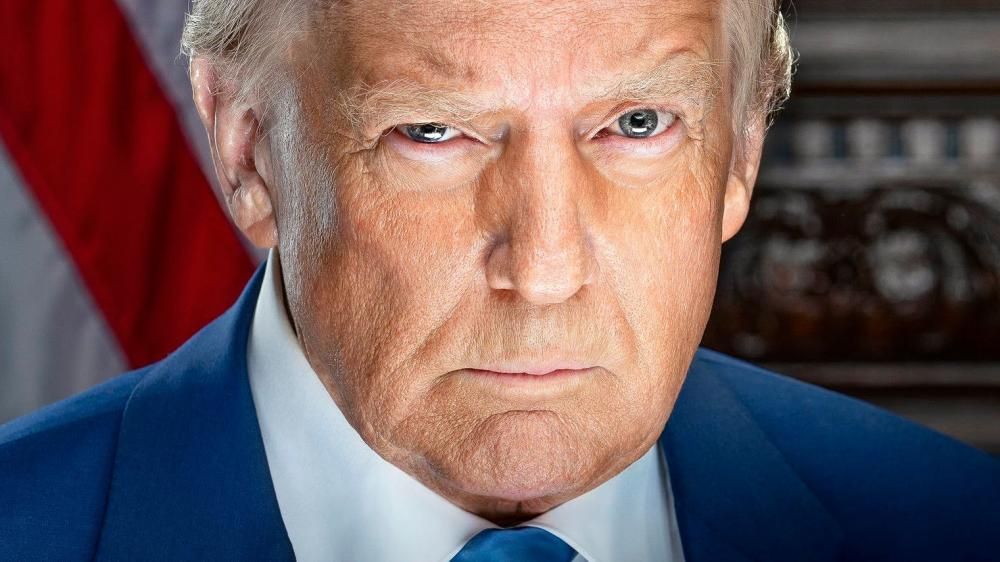As an African Watching from Afar, I Can’t Help But Reflect on: Trump’s Return to the White House and Its Ripple Effect on the Continent
Trump is back in the Oval Office, and for Africa, this marks a pivotal moment. This isn’t just another term or political headline—it’s a reality check on how the continent engages with a superpower doubling down on its “America First” agenda.

Africa has seen this play before. Every U.S. administration brings a blend of hope and skepticism, but Trump’s return signals something different. The question isn’t just about what he’ll do; it’s about how Africa will adapt to policies that may prioritize American interests over global partnerships.
Trump’s Policy Playbook
Trump wasted no time reinstating his “America First” doctrine. His executive orders on trade and tariffs signal a return to policies that, during his previous tenure, saw U.S.-Africa trade drop from $100 billion to $41 billion. For African exporters, this means potential roadblocks in accessing the U.S. market, especially with higher tariffs aimed at protecting American industries.
But it’s not just about trade. Trump’s decision to suspend foreign aid programs for a 90-day review adds another layer of uncertainty. African nations relying on U.S. assistance for development and humanitarian efforts may now face disruptions that could have far-reaching consequences.
The Real Game Changer: The China Factor
While Trump is refocusing American efforts on its own interests, China continues to expand its influence across Africa, and its footprint is more entrenched than ever. China’s Belt and Road Initiative (BRI) has led to significant investments in African infrastructure—from building roads and railways to expanding energy and telecommunications networks. This ongoing investment isn’t just about physical infrastructure; it’s about securing long-term political and economic leverage across the continent.
China has become one of Africa’s top trading partners, offering financing that Western countries sometimes hesitate to provide. This has strengthened China’s position as a dominant player in Africa, particularly in sectors that align with the continent’s development goals, such as infrastructure, energy, and technology.
What’s Really at Stake
The African Continental Free Trade Area (AfCFTA) is another crucial factor in Africa’s evolving role. This landmark agreement, which officially came into force in 2021, aims to create a single market across Africa for goods and services. The AfCFTA has the potential to dramatically shift Africa’s economic landscape by reducing trade barriers within the continent and facilitating intra-Africa trade.
Given the continent’s growing market size and economic power, the AfCFTA allows African nations to diversify their trade relationships and reduce dependence on external powers, including the U.S. and China. While the trade agreements and partnerships with these global powers remain essential, Africa’s ability to drive its own economic growth through regional collaboration is becoming more of a priority.
For African leaders, the strategy must be clear: engage with Trump’s administration on Africa’s terms, not as a passive recipient but as an equal partner. Whether negotiating trade deals or seeking foreign investments, the continent has to assert its position as indispensable in the global economy.
Writing the New Rules
Trump’s return might feel like déjà vu, but Africa isn’t the same continent it was four years ago. With growing economic initiatives, a young and vibrant population, and increasing global influence, Africa is learning to navigate a world where every superpower wants a stake.
The game has changed. Africa isn’t just participating—it’s shaping the rules. Whether Trump’s policies help or hinder, the continent’s future depends more on decisions made in Addis Ababa, Lagos, and Nairobi than in Washington, D.C.
I’d love to hear your thoughts—how do you think Trump’s return to the White House will impact Africa? Join the conversation and share your perspective. Let’s keep this dialogue going.




















+ There are no comments
Add yours